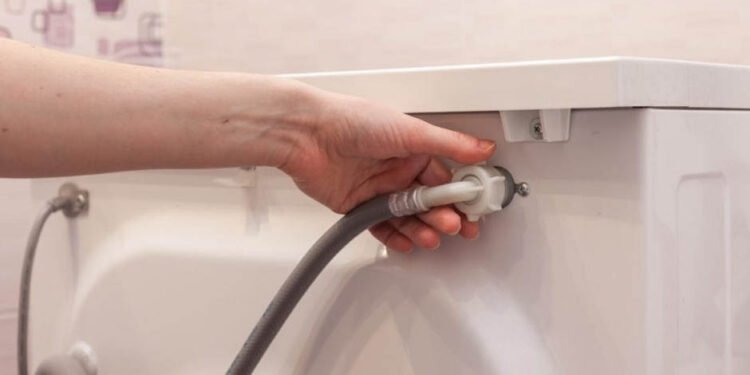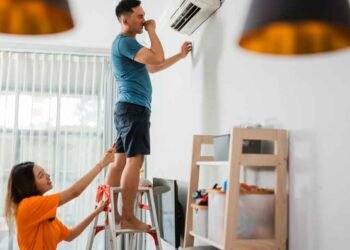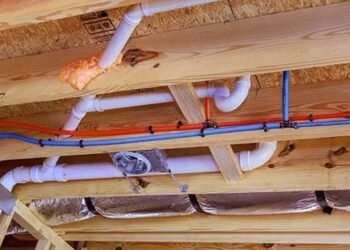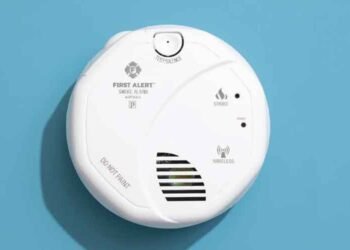Water leaks at a home can be disastrous, leading to severe damages and huge repair costs. However, landlords can prevent household leaks even before they start. Do you want to know? Follow these tips below:
Examine Plumbing Fixtures Everyday
Regular inspections are crucial for water leak prevention. Even the sturdiest plumbing fixtures in a landlord’s property can develop leaks over time. Once leaks are detected early, landlords can save themselves and their tenants from severe problems in the future. Look for signs of moisture, pooling water, or discoloration around toilets, below sinks, and nearby water heaters. Carry a flashlight to check the difficult-to-reach areas, as well as near fittings and pipes for dampness.
Test Shut Off Valves Everyday
Using shut-off valves correctly can help prevent severe water damage during leakages. Regular testing guarantees they function smoothly as and when required, or landlords can shift to an auto toilet water shut-off valve motion device to prevent water leakages. This leak prevention device with a motion sensor can detect when a person is nearby. Once this shut-off valve senses the person’s movement, it opens the valve so water flows to the toilet.
Use Water Leak Detectors
Landlords should install water leak detectors on their properties, as these mini devices can alert them to leaks before they turn into major disasters. They work well, mainly in areas prone to water leakages, such as below sinks, basements, and water heaters. Such devices detect moisture and pass alerts to your alarm system or phone. Certain advanced models can automatically shut off the water supply. It’s wise for landlords to install water leak detectors in places where water damage can be particularly detrimental.
Regularly Maintain Water Heater
Water leaks can be an outcome because of irregularly maintained water heaters. Routine maintenance extends its longevity and prevents water leaks. You should flush the tank yearly to remove sediment accumulation as that causes leaks and corrosion. Plus, you should examine the tank for wear/rust and pressure relief valve. Professional reports can always replace the water heater at the right time to prevent major leakages in the landlord’s property.
Fix Damaged or Old Grout and Caulking
Damaged and old grout and caulking may let water seep into floors and walls, which causes mold and structural damage. You can remove the old caulking using a putty knife and clean the area nicely. Then, you should apply a bead of caulking to smooth the surface for the watertight seal. With a grout saw you can remove the old grout and then put new grout to seal the old one. By addressing these minor tasks, landlords can save themselves and their properties from major repairs in the future.
Insulate the Water Pipes
Landlords should insulate water pipes in properties located in colder climates. Frozen pipes may burst and cause massive water damage. Foam pipe insulation is a good option for easy application. Work on pipes in unheated areas, such as crawling spaces, attics, and basements. Try to secure the insulation with tape so no gaps exist between pipes.
Maintain Roof and Gutters
Roof leakages may cause water damage inside the home. Regular examination and maintenance of roofs and gutters are crucial to prevent leaks. Clean the gutters of debris and leaves to improve the drainage system. Sometimes, the ceiling leak can be persistent because of the clogged gutter causing water to accumulate below the roof shingles.
Keep an Eye on the Water Bill
Landlords should always monitor water bills, as this is one of the best ways to detect hidden leaks. A sudden increase in bills without the increased use of water indicates a leak anywhere inside your home. Compare the water bills of the last 3 to 4 months. If you notice an increase, you should try to find out the possible reasons. Check for dripping faucets, running toilets, and weird sounds in plumbing. You may have extremely high water bills for months because of the slow leakage from the external spigot that is easy to repair once detected.
The Bottomline
So, now you know the tips to prevent household leaks even before they start. By regularly inspecting plumbing conditions, monitoring water bills, and taking the necessary steps as needed, landlords can protect their properties from expensive water damage. Following these tips allows landlords to feel confident that the plumbing conditions in their homes are likely to be in good shape.












